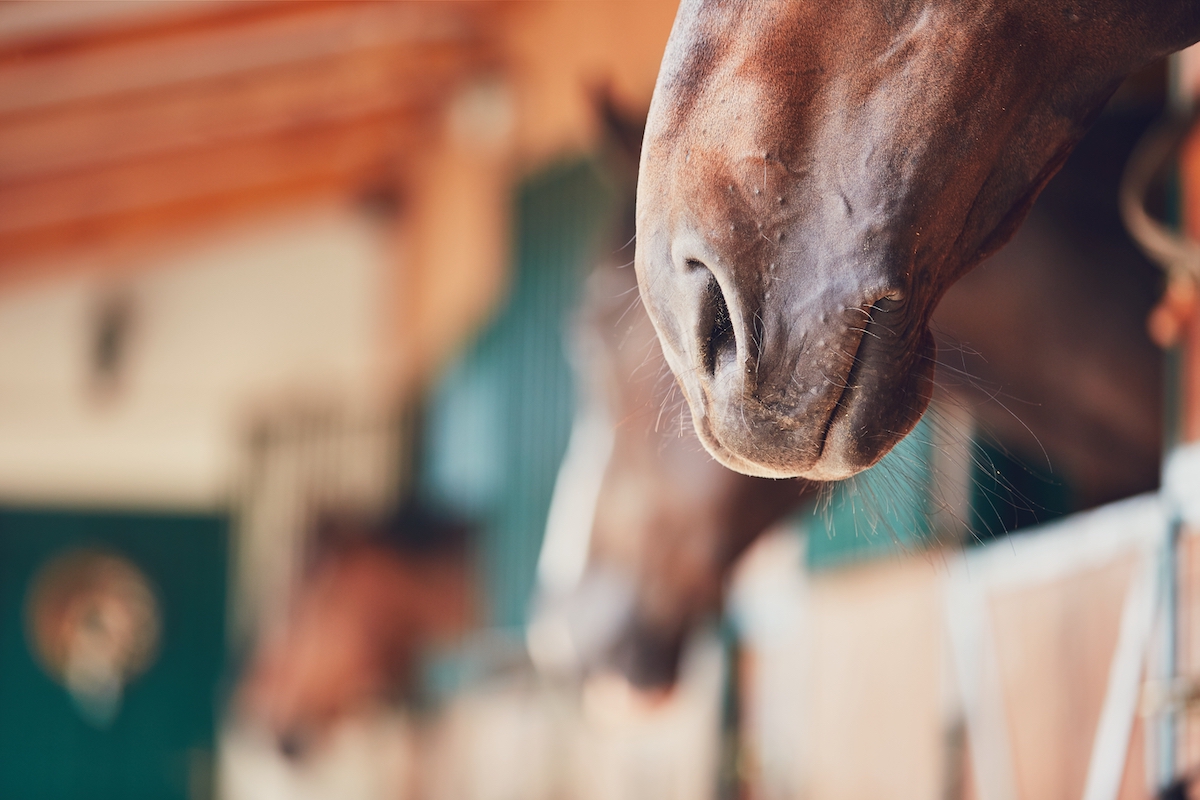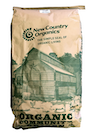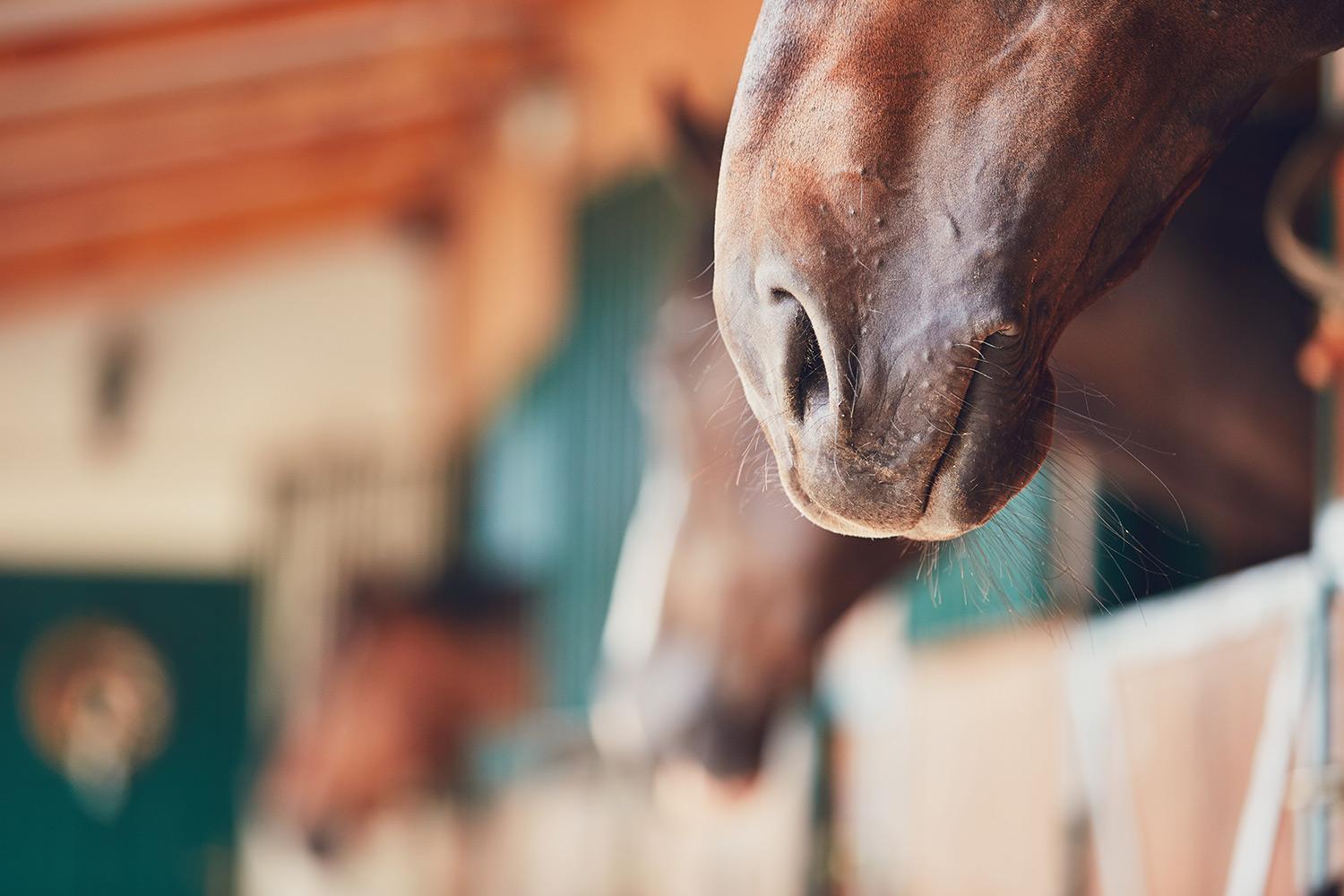

We all dream of horses grazing on lush, green pastures, but that dream can become a nightmare in reality. During the Spring and Summer seasons (and sometimes into the fall), a low starch diet can be critical for many horses.
Identify Possible Risks
Just like humans, horses may need dietary restrictions to maintain a healthy weight and mental focus. Horses prone to laminitis or with metabolic disorders like insulin resistance and tying-up require extra attention and precautions when pastures are rich with sugary, fresh grass. At New Country Organics, we have a particular love for these types of horses, and are here to help you manage them with a low starch lifestyle.
How do you know if your horse is at-risk? Basic body condition can be a simple place to start evaluating.
- If your horse has fat deposits along its topline, around the tail head, or behind the shoulders, you should consider reducing sugar/starch intake immediately and collaborate with a vet to develop a wellness plan.
- If your horse develops a thick, cresty neck that is hard to the touch, consider a visit with your veterinarian as soon as possible. This is often a sign of a serious metabolic issue.
- If your horse’s feet become warm to the touch and your horse begins moving delicately, it may be experiencing a laminitic episode and should see a veterinarian immediately.
If you determine that your horse is at-risk, your veterinarian may perform blood work or other physical evaluations to help diagnose the problem. While you are waiting for your diagnosis, there are a few steps you can take to safeguard your horse’s health:
Step 1: Remove or limit access to lush pasture or grass.
Laminitic and other at-risk horses should be moved into a “dry lot” paddock and fed primarily low nonstructural carbohydrate (NSC) hay. To be safe, you can have your hay tested. You can soak your hay, typically for an hour, before feeding it to further reduce its NSC content.
If you do not have access to a “dry lot” paddock, you may also use short turnout periods in a grazing muzzle to limit intake. Proper fit to prevent rubs and skin irritation is very important, and recommendations are typically given by the manufacturer.
A common mistake when managing at-risk horses is the fasting method. A horse is healthiest when provided with a steady flow of fiber and key nutrients. Long periods of fasting can drastically increase the likelihood of gastric ulcers, which are painful and dangerous for any equine. A regular flow of hay and water is paramount.
Step 2: Develop a balanced, soy-free, low starch feed program.
In our modern world, there are many safe, low starch horse feed options available. The most important consideration is that your horse gets a balanced diet that is rich in vitamins, minerals, probiotics, and fiber. Supporting gut, hoof, and muscle health is just as important as restricting sugars and starches for at-risk horses.
Our very own soy-free Low Starch horse feed, Coolstance® copra meal, organic alfalfa pellets, and non-GMO beet pulp pellets are some of our favorite low starch products at New Country Organics. Any of these feeds can be purchased through our online store, can be combined with each other, and can be further supplemented with our free choice Healthy Minerals for Horses.
Always consult with your veterinarian before making dramatic dietary changes and before using any disorder-specific supplements or herbs. Incorrect usage or self-diagnosis may do more harm than good.
Did we say soy-free? Yes we did! Soy is high in phytic acid. As monogastric animals, horses (and we humans!) don’t create an enzyme called phystase - which prevents phytic acid from blocking vitamin and mineral uptake. Soy is also high in phytoestrogens, which can be hormonally disruptive and make fighting certain metabolic disorders an uphill battle. Unfortunately, soy has crept into nearly everything edible on the market, which is why we are so diligent about staying soy-free as a company.
Certified organic and non-GMO soy-free feeds create better bioavailability of key nutrients for your horse. We could talk for days about the harmful effects of insecticides, herbicides, and GMOs found in conventional feeds. If you want a quick tour, visit our blog post about glyphosate. We believe that organic is the gold standard of agriculture.
We are here for you!
Are you overwhelmed by the number of options for your horse’s low starch feeding program? New Country Organics has on-site organic oracles for your nutrition questions. Call us at 888-699-7088 today, and ask for one of the pony people! We look forward to meeting you.










